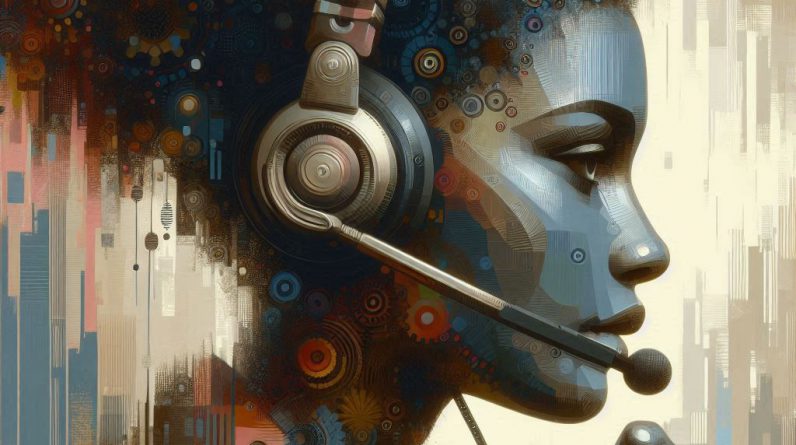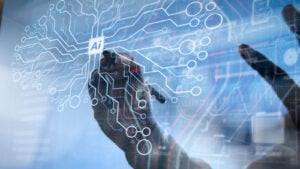As AI continues to advance and companies look to integrate AI to future proof their businesses, a topic of great interest is how AI could impact HR professionals. One thing is for certain: we cannot predict the extent of AI’s rapid growth and commercial impact. What we can do, however, is look at our current understanding of AI, its evolution to date and the potential opportunities and pitfalls that could be at play in the coming years for HR professionals. Let’s begin with the opportunities.
AI can certainly help with efficiency and productivity. According to a study by McKinsey & Company, AI has the potential to automate up to 45 per cent of HR tasks. If businesses begin to embrace AI automation for HR tasks, it’s worth considering how the potential 45 per cent efficiency could allow people professionals to focus on more strategic initiatives, utilising their skills and expertise to maximise results, rather than merely reducing HR staff numbers.
Among the most exciting aspects of AI integration with HR is the opportunity for enhanced data-driven decision making, inclusion and equality. With AI algorithms analysing vast amounts of data, providing both HR teams and staff with employee performance and progress, identifying skills gaps and recommending personalised professional development plans, HR staff will be empowered to clearly demonstrate staff development and execute meaningful conversations supported by data and structured career development paths, which in turn is expected to improve retention.
Enhancing the use of algorithms can help reduce unconscious bias in the process of hiring and promotion, leading to a potentially more diverse and inclusive workplace. As AI ethics researcher Timnit Gebru has said: “AI has the potential to mitigate bias by removing human subjectivity from decision-making processes.” Ensuring greater inclusion in the workplace is very important and something that HR professionals, companies and staff will all benefit from.
Employee satisfaction is predicted to be enhanced by staff benefiting from non-bias, data-driven performance management, greater clarity on specific, in-depth KPIs for salary negotiation, promotion and long-term career development. Employees could also benefit from personalised salary packages, benefits and career development tailored specifically to their individual performance metrics, career development paths and individual preferences. These features would greatly enhance employee satisfaction when negotiating or renegotiating employment contracts.
AI-powered chatbots could also assist staff in understanding company policies, procedures and benefits. This instant communication would reduce the demands on HR professionals and is predicted to enhance staff satisfaction and retention for those companies that maximise these AI features. Gartner’s report on the future of AI in HR management states: “AI-driven chatbots are revolutionising how HR professionals engage with employees during negotiation processes, providing personalised guidance and fostering transparent communication.” However, there are potential cons to consider.
Many are raising concerns about the use of AI in HR when it comes to employee privacy and data security. AI algorithms require access to vast amounts of data, some of which is sensitive employee information. This could leave companies vulnerable to privacy breaches, data misuse and concerns for staff at large.
Job displacement is also a matter of huge concern at present. A report by the World Economic Forum states that AI and automation could displace 85 million jobs by 2025, which includes HR roles. Naturally, this leaves many concerned by the shift in AI integration with their respective companies. To what extent will businesses embrace this change, and where will that leave the people who suffer as part of the job losses?
HR is so much more than data, tick boxes and salary figures. Conflict resolution, counselling, performance management and empathy are integral to a skilled HR professional – skills that enhance the employee experience and add that human touch AI lacks. To what extent will each company value and prioritise these key skills? Bringing these aspects to the forefront of the conversation between HR and their management when considering AI integration is vital.
Although AI algorithms can distil data from vast reports at incredible speed, there is the challenge of algorithmic bias that must also be considered, monitored and factored against. AI researcher Joy Buolamwini has highlighted that “without careful design and monitoring, AI systems can perpetuate and even exacerbate existing inequalities”. Are we opening ourselves up to greater vulnerabilities at scales we are yet to understand? Are businesses at risk of utilising AI algorithms without fully understanding the extent of the monitoring or safeguarding needed to prevent AI algorithm bias or misinformation?
As many HR practitioners can attest to, a certain level of intuition and human judgement is part of their role – a quality that is beyond that of AI to date. Ensuring people professionals can benefit from the insights of the data efficiencies of AI and its objectivity, while also maintaining a human touch, is certainly a recipe that most are beginning to favour.
As we begin to understand and prepare for the integration of AI further into our negotiations, HR professionals have much to gain and much at stake. With all of this in mind, it’s vital that companies look at the whole picture. There are many benefits. There are also many risks. To close our eyes to either would be at our peril.
Siobhan Bermingham is a negotiation consultant at Scotwork





